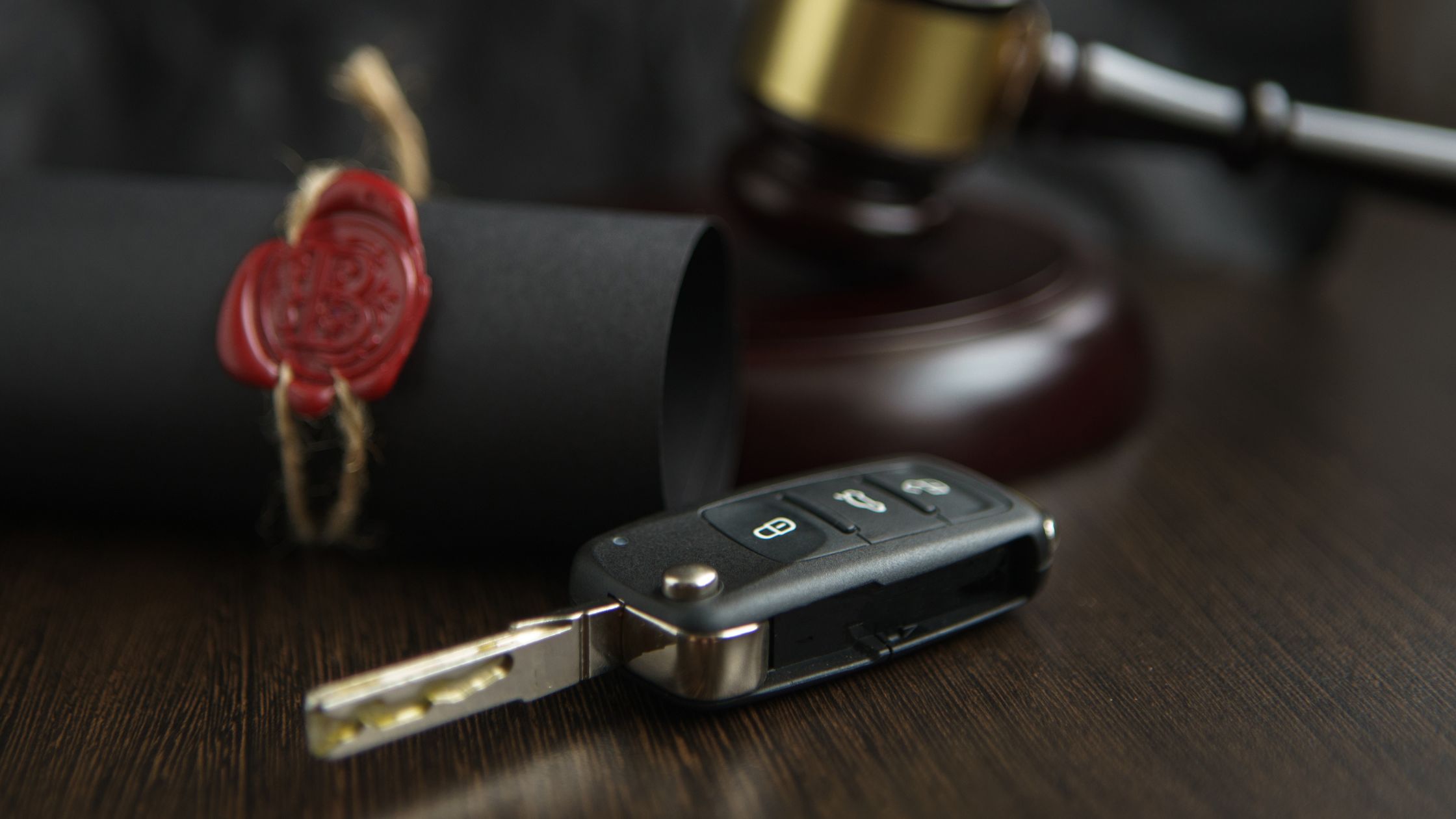Experience
The sudden flash of teeth, the searing pain, the primal fear – a dog attack can be a life-altering experience. Beyond the physical wounds, the emotional and psychological trauma can linger long after the incident. If you’ve been bitten by a dog, understanding your legal rights and potential avenues for compensation is crucial for moving forward. This comprehensive guide delves into the complexities of dog bite lawsuits, exploring the legal landscape, factors influencing compensation, and the steps involved in seeking justice.
Understanding Dog Bite Laws: A State-by-State Landscape
Dog bite laws vary significantly across the United States. Understanding the legal framework in your state is the first step in determining your rights and potential course of action. Here’s a breakdown of the two main legal principles governing dog bite liability:
- Strict Liability Laws: In some states, dog owners are held strictly liable for any injuries their dog inflicts, regardless of prior knowledge of the dog’s aggressive tendencies. This simplifies the legal process for victims, as they don’t need to prove the owner’s negligence. Examples of strict liability states include California, Florida, and Texas.
- Negligence Laws: Other states have negligence laws requiring the victim to prove the dog owner knew or should have known their dog posed a threat of harm. Evidence could include prior bites, aggressive behavior toward others, or failure to properly restrain the dog. Examples of negligence states include New York, Pennsylvania, and Virginia.
Local Ordinances and Leash Laws:
Many cities and counties have leash laws mandating that dogs be restrained on leashes in public spaces. A violation of leash laws can strengthen your case, especially if the dog was unleashed during the attack. Additionally, some municipalities have breed-specific regulations or ordinances targeting dog breeds historically associated with aggression.
Understanding “One-Bite Rule” Exceptions:
The “one-bite rule” is a legal concept, primarily applicable in negligence states, that suggests dog owners are not liable unless they knew or should have known their dog was likely to attack. However, this rule has numerous exceptions, including:
- Provocation: If the victim was trespassing or intentionally provoking the dog, they might be found partially responsible, which could impact compensation.
- Knowledge of Vicious Propensity: Even in “one-bite rule” states, owners can be held liable if they knew or should have known their dog had a history of aggression.
- Breeds with a Propensity to Bite: Some states might require stricter care for owners of certain breeds with a reputation for aggression.
Beyond State Laws: Potential Federal Claims
In rare instances, dog bite cases might involve federal claims, particularly if the attack occurred on federal property or involved a service animal. Consulting with an experienced personal injury lawyer familiar with your state’s laws and potential federal implications is crucial for navigating the legal complexities of your case.
Factors Affecting Compensation in Dog Bite Lawsuits
The potential compensation you can receive after a dog attack depends on a multitude of factors, including:
- Severity of Injuries: The extent and severity of your injuries play a major role in determining compensation. More severe injuries requiring extensive medical treatment, surgery, or rehabilitation will typically result in a higher salary compared to minor puncture wounds.
- Medical Bills and Lost Wages: Compensation can cover past and future medical expenses related to the attack, including doctor visits, medications, physical therapy, and any surgeries needed. Additionally, lost wages due to missed work can be factored into the equation.
- Pain and Suffering: The emotional and psychological distress caused by the attack is compensable. This can include anxiety, fear of dogs, post-traumatic stress disorder (PTSD), and emotional scarring.
- Long-Term Effects: If the attack resulted in permanent scarring, disability, or ongoing psychological problems, these long-term effects could significantly impact compensation.
- Shared Fault: Some states follow comparative negligence laws, meaning your compensation might be reduced based on the percentage of fault attributed to you for provoking the attack.
Understanding Damages in Dog Bite Lawsuits:
There are two main categories of damages awarded in dog bite lawsuits:
- Economic Damages: These are quantifiable losses with clear monetary value, such as medical bills, lost wages, future medical expenses, and lost earning capacity.
- Non-Economic Damages: These are intangible losses and can be more subjective. They include pain and suffering, emotional distress, mental anguish, scarring, and loss of enjoyment of life.
Taking Action After a Dog Bite: Essential Steps
The immediate aftermath of a dog attack can be overwhelming, but taking the following steps can help protect your rights and strengthen your case:
- Seek Medical Attention: This is the most crucial step. Getting immediate medical attention ensures you receive proper treatment for your injuries and creates a documented record of the attack. The medical report will detail the extent of your injuries, which becomes vital evidence in your case.
- Report the Attack: File a report with animal control. They will investigate the incident and potentially quarantine the dog to ensure public safety. In some cases, depending on the severity of the attack and the dog’s history, animal control might pursue legal action against the owner. Reporting the attack to the police might also be necessary, especially if the attack involved significant injuries or violating local leash laws.
- Gather Evidence: While memories might be hazy after a traumatic event, try to gather as much evidence as possible. Take photos of your injuries at the scene of the attack and throughout the healing process. Document any visible bite marks, bruising, or scarring. If possible, take photos of the dog and the location of the attack. Note the date, time, and any details about the attack’s circumstances. Were there any witnesses? If so, get their contact information.
- Keep Records of Medical Bills and Lost Wages: Hold onto all medical bills, receipts, and doctor’s notes related to your injuries. If you miss work due to the attack, document your lost wages by collecting pay stubs or a letter from your employer.
- Contact a Personal Injury Lawyer: An experienced lawyer can advise you on your legal rights and the best course of action for your case. They will handle communication with the dog owner’s insurance company, navigate the complexities of dog bite laws in your state, and fight for the maximum compensation you deserve. Many lawyers offer free consultations to discuss your case and assess its potential.
The Legal Process: Negotiation, Settlement, or Trial
After you consult with a lawyer, they will likely initiate communication with the dog owner’s insurance company. The insurance company will investigate the claim to determine liability and the extent of coverage. Negotiation is a common first step. Your lawyer will present evidence supporting your claim and negotiate a fair settlement with the insurance company.
Your lawyer might recommend filing a lawsuit if a fair settlement cannot be reached. This initiates the formal legal process, which can involve pre-trial procedures, depositions, and potentially a court trial. The judge or jury will ultimately decide on liability and the compensation you are entitled to receive.
Conclusion:
Seeking Justice and Moving Forward
Dog bite attacks can have a lasting physical and emotional impact. Understanding your legal rights and the potential for compensation empowers you to take action and move forward with your life. While this guide provides a comprehensive overview, dog bite laws vary by location. Consulting with a qualified personal injury lawyer in your state is the most effective way to navigate the legal complexities of your case and ensure you receive fair compensation for the trauma you’ve endured.
Remember: Don’t hesitate to seek legal counsel if you’ve been bitten by a dog. A skilled attorney can be your advocate throughout the process, ensuring your voice is heard, and your rights are protected.
Frequently Asked Questions (FAQs):
- What should I do immediately after a dog bite? Seek medical attention and report the attack to animal control and the police. Gather as much evidence as possible, including photos of your injuries, the scene, and any witnesses.
- Do I need to call the police if the dog belongs to a friend or neighbor? It depends on the severity of the attack and your relationship with the owner. However, reporting the attack is always recommended to document the incident.
- Will the dog owner’s homeowner’s insurance cover my injuries? Most homeowner’s insurance policies cover dog bite liability. The insurance company will investigate the claim to determine coverage and the extent of your injuries.
- What if the dog was off-leash when it attacked me? In many areas, leash laws are in place. This strengthens your case if the dog was not leashed, as the owner was likely negligent in controlling the pet.
- Can I sue for emotional distress after a dog bite? Yes, pain and suffering, including emotional distress, are often compensable damages in dog bite cases.
- What happens if I’m partly to blame for the attack? Some states have comparative negligence laws. This means your compensation might be reduced based on the percentage of fault attributed to you for provoking the attack.
- How long does a dog bite lawsuit typically take? The timeframe can vary depending on the case’s complexity, the severity of your injuries, and whether it goes to trial. Simpler cases with clear liability might settle within a few months, while complex cases involving significant injuries and extensive medical records could take a year or longer.
- Should I settle with the insurance company or go to court? An experienced lawyer can advise you on the best course of action based on the specifics of your case. Settling can be faster and less stressful, but it also means accepting a lower compensation than you could receive through a court verdict. Going to trial allows for the possibility of a higher award, but it’s a longer and more expensive process.
- What happens if the dog owner doesn’t have insurance? If the dog owner lacks liability insurance, pursuing compensation becomes more complex. Your lawyer might explore options like filing a claim under your homeowner’s or renter’s insurance policy (if applicable) or attempting to collect a judgment directly from the dog owner, although this can be challenging depending on the owner’s financial situation.
Additional Tips:
- Be truthful and consistent with your statements: Throughout the legal process, be honest and consistent when providing information about the attack, your injuries, and any communication you have with the dog owner or insurance company.
- Maintain a paper trail: Keep organized records of all medical bills, receipts, doctor’s notes, communication with the insurance company, and any other documentation related to the attack and your case.
- Be patient: The legal process can take time. Trust your lawyer and avoid making rash decisions, such as accepting a lowball settlement offer, before your case is fully evaluated.
- Focus on healing: While addressing legal matters, prioritize your physical and emotional well-being. Seek any necessary medical treatment, therapy, or counseling to help you cope with the trauma of the attack.
Remember, this guide serves as a general informational resource. The specific laws and procedures related to dog bite lawsuits can vary significantly by state. Consulting with a qualified personal injury lawyer in your area is the most effective way to understand your rights, navigate the legal process, and secure the compensation you deserve after a dog attack.
For more detailed information, visit the original article on Reiner, Slaughter & Frankel’s website.
Related Links:
- When Will I Get Paid After a Settlement?
- How Long After an Accident Can You Claim Injury?
- Maximize Your Compensation: A Guide to Personal Injury Lawyer Fees
- Understanding Your Legal Options After a Fire: Wrongful Death, Property Loss, and Business Damages
Table of Contents










